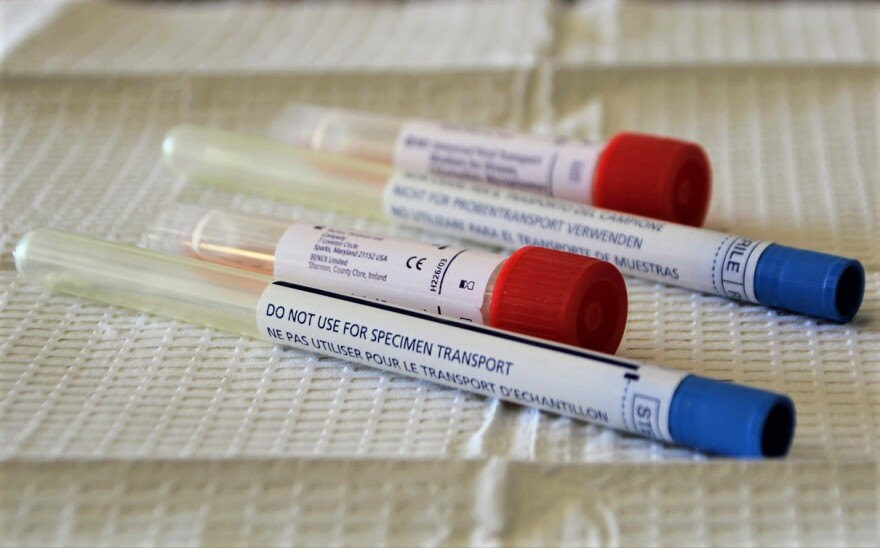Before the pandemic, Wichita State University didn’t have a federally certified lab capable of handling coronavirus testing.
Now it does. And the new nonprofit outfit is gearing up to churn out hundreds of thousands of tests by the end of the year.
“I know that sounds like a lot,” said Tonya Witherspoon, Wichita State’s vice president of industry engagement, “but we think several labs in the state need to be able to do that much — or more.”
Kansas health officials are looking to that facility — which launches in October — as part of a strategy to dramatically ramp up testing of people who aren’t showing obvious signs of COVID-19. After all, they can still carry the virus.
This week, a state task force backed Kansas Health Secretary Lee Norman’s recommendation to spend more than $50 million in federal stimulus money on testing at schools, workplaces and other sites.
The goal: To test fast and often, catching coronavirus in people who haven’t even realized they’re carrying it.
The Harvard Global Health Institute says Kansas currently tests too few people to do much more than triage the pandemic that has killed more than 170,000 people nationwide, forced schools online and shuttered many businesses.
Putting true brakes on the disease requires more widespread testing, something that only nine states currently do.
Kansas has so far focused most of its energy on people who know either that they are ill or that they have had direct exposure to a confirmed outbreak. But experts say positivity rates should drop when a state or city goes beyond testing these groups of people who are most likely to be sick.
Right now, about 15% of Kansans who get the test find out they have COVID-19. By Johns Hopkins University’s calculations, that puts it among the states with the highest rates of new positives.
A figure so high worries public health experts in part because it suggests Kansas isn’t testing enough to truly track and control COVID-19. A lower positivity rate gives epidemiologists better confidence that enough tests are being conducted to move fast and isolate cases early.
Three proposals on the table
Kansas is figuring out how to spend nearly $300 million in CARES Act funding that it hasn’t yet allocated — and that it must largely spend by the end of this year.
So far, the task force that makes spending recommendations has earmarked about $50 million of it for testing, pending approval by a panel of lawmakers and Gov. Laura Kelly.
Ultimately, the figure could go much higher, but the initial sum would fund three key projects.
About $20 million would go toward testing in primary and secondary schools. The state would buy kits for rapid, on-site testing at schools, and contract with labs that offer swift turnaround of large volumes.
That would effectively reserve a portion of local lab output for the state’s education system. State leaders including Norman and Senate Majority Leader Jim Denning have expressed anxiety that Kansas risks losing homegrown capacity to out-of-state buyers. The L.A. Unified School District, for example, recently inked a deal with Lenexa lab CRL for saliva tests.
Another $20 million would pay for workplace testing on the Kansas side of the Kansas City area — Leavenworth, Wyandotte, Johnson and Miami counties.
The proposal comes from Lenexa lab MAWD Pathology Group and would cover 200,000 tests with quick turnaround times. The idea is to recommend that employers screen 15% of their staff for COVID-19 each month.
Kansas would also put $12 million toward Wichita State University’s new not-for-profit lab, which plans to offer COVID-19 testing for a fraction of the price that commercial labs charge.
The university pulled together experts from its medical lab program and local hospitals, and spent months ordering hard-to-get testing equipment and setting up a home for it. In July, the new lab secured federal certification.
Wichita State is proposing to run 200,000 tests between October and December, and would look to state health officials for guidance on where to focus its efforts in Sedgwick and other counties.
The university hopes to help hospitals, for example, to catch asymptomatic carriers by screening health workers regularly, and to help clinics that serve uninsured people with better testing access in low-income neighborhoods.
The lab bought equipment to do far more than the 200,000 in the proposal, and said it could also ratchet up output by working nights and weekends.
Celia Llopis-Jepsen reports on consumer health and education for the Kansas News Service. You can follow her on Twitter @celia_LJ or email her at celia (at) kcur (dot) org. The Kansas News Service is a collaboration of KCUR, Kansas Public Radio, KMUW and High Plains Public Radio focused on health, the social determinants of health and their connection to public policy.
Kansas News Service stories and photos may be republished by news media at no cost with proper attribution and a link to ksnewsservice.org.





